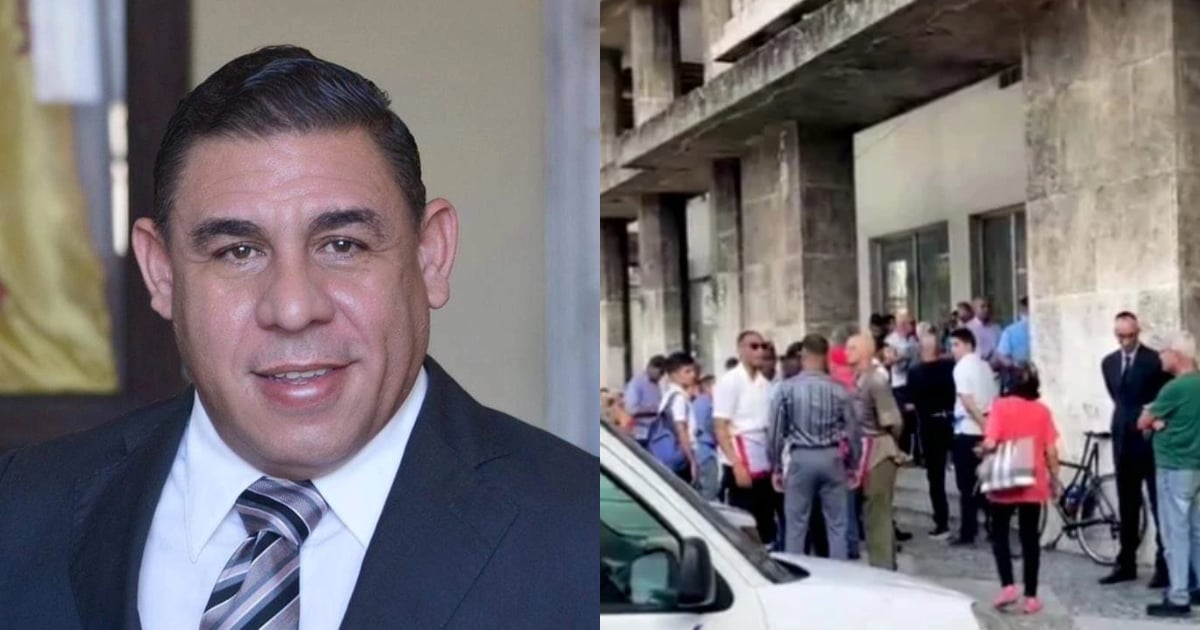The Grand Master of the Lodge of Cuba, Mario Urría, sent a message on July 24 to nearly 200 Cuban masons who had protested the day before at the Great National Masonic Temple, demanding his resignation. In a message accessed by Cubanet, Urría criticized some members of his jurisdiction for placing their personal interests "above the interests of the Institution." He also noted that the protest began outside the building and ended in the lobby of the 11th floor, in front of the Grand Master's office.
Despite this, Urría acknowledged that the protest was peaceful. "It is my duty to express that there was no violence, even though I entered through the main door of the Great Temple in the presence of many of my brothers," he wrote in the note sent to all masons. Additionally, he condemned that "the demands made within the supposed Masonic laws" were not conducted in accordance with their "precepts and oaths."
Controversies and Accusations
In his letter, Urría highlighted the presence of representatives from the Supreme Council at the protest, notably Angel Santiesteban Prats, whom he accused of playing a "leading role in the campaign of discredit and distortion of the facts." This refers to Urría's refusal to comply with his expulsion decreed by the Supreme Council in January of this year, following the theft of $19,000 from his office. In March, he attempted to preside over a session of the High Chamber and was met with shouts of "traitor and coward." Most of his team resigned from their positions.
Urría also lashed out at independent journalist Camila Acosta, accusing her of having access to information that "a non-Mason" should not possess. He insinuated that there were dissident elements infiltrating among the masons. "Some brothers have shown clear signs of attacking government institutions with marked political positions, which many believe are disguised as supposed Masonic motives," he stated.
Urría expressed openness to masons presenting complaints but insisted they do so within official channels. He was visibly upset that the internal issues of the Grand Lodge of Cuba had been "mediatized." In this context, he called on masons not to participate "in any plot." "Let us not allow internal enemies to use us to achieve objectives that have nothing to do with Fundamental Precepts and put our existence at risk. This Grand Mastership will defend the permanence of our August Institution above any personal or political interest. Let us resolve our problems internally and in adherence to Masonic laws, not through social networks or media," he pleaded.
According to testimonies collected by Cubanet during the protest in front of the Grand Lodge of Cuba, the masons explained that they were protesting after the Ministry of Justice of the Island reinstated Urría following his expulsion for "violating morals" and "betraying principles." Therefore, the protest was not only against the Grand Master but also against the regime's interference in the internal affairs of Cuban masons. They also explained that they had gathered there after exhausting all avenues to be heard.
The tipping point was Decree 1791 of July 19, through which Urría suspended the Treaty of Friendship and Mutual Recognition between the Grand Lodge of Cuba and the Supreme Council. This effectively shattered two centuries of Masonic unity and peace, as it forced masons to choose between the two institutions and jeopardized the international recognition of the Cuban order. On July 23, the Ministry of Justice of Cuba issued an informational note stating that it had detected "irregularities due to non-compliance with internal statutes" following the Grand Master's expulsion, and therefore ordered "to carry out these processes again in accordance with the statutes and the will of its members."
Ultimately, the Cuban government conceded to the protests of the masons and agreed to hold elections. This is an unprecedented event in the history of Cuban Masonry, which included demonstrations against the Grand Master of the Order, expelled for corruption and reinstated by the regime for his loyalty to it.
Key Questions About the Masons' Protest in Cuba
To provide further clarity on the recent events surrounding the protest by Cuban masons, here are some key questions and answers.
Why did the Cuban masons protest against Grand Master Mario Urría?
The masons protested against Mario Urría due to his refusal to comply with his expulsion decreed by the Supreme Council, following the theft of $19,000 from his office. They also opposed the regime's interference in their internal affairs.
What was Decree 1791 and why was it significant?
Decree 1791, issued by Mario Urría, suspended the Treaty of Friendship and Mutual Recognition between the Grand Lodge of Cuba and the Supreme Council. This decree shattered two centuries of Masonic unity and peace and forced masons to choose between the two institutions, threatening the international recognition of the Cuban order.
How did the Cuban government respond to the masons' protest?
The Cuban government ultimately conceded to the masons' protest and agreed to hold elections. This decision marked an unprecedented event in the history of Cuban Masonry.
